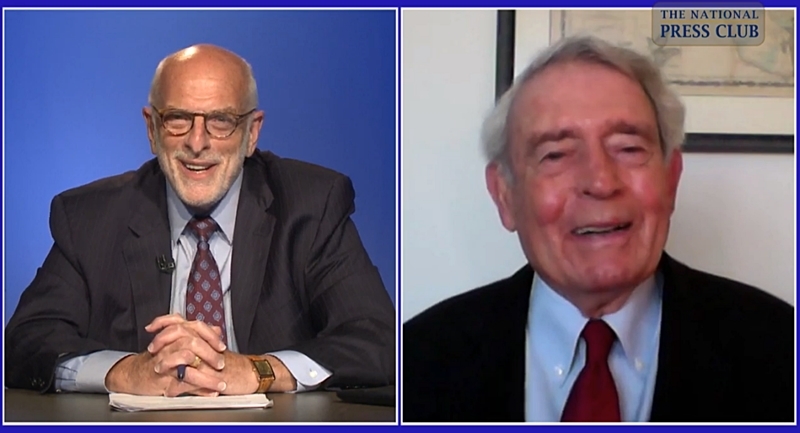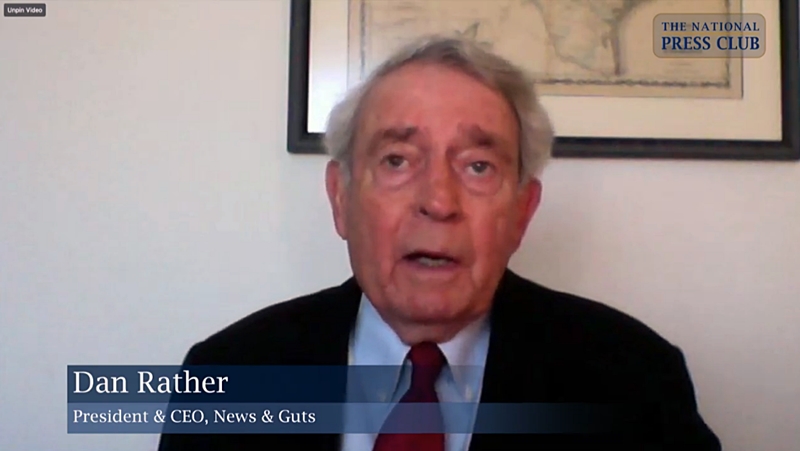“The single most important thing as an anchor is for the audience to trust you,” he said. “That is something that is hard to define and hard to describe how you do it. I want to say, ‘Folks, I’m not the best pure anchor person that television has produced. I don’t claim to be. I’m a lifetime reporter, and I consider myself someone who covers the news, and I hope you will give that some credibility.’”
Rather's wide-ranging, live-streamed conversation with Freedman, who had been general manager of CBS Radio Network News and had worked with Rather on special reports, can be seen on the Club's website or YouTube channel. Rather spoke from his home in Austin, Texas.


